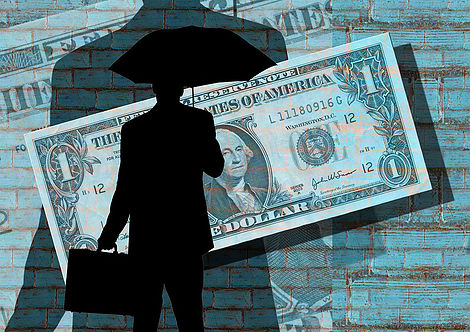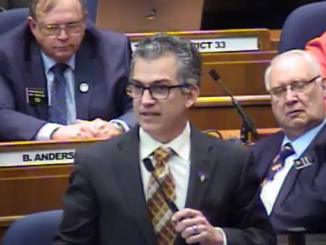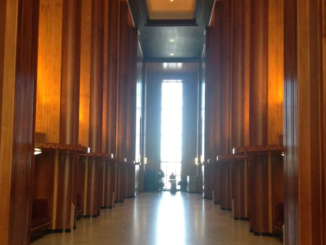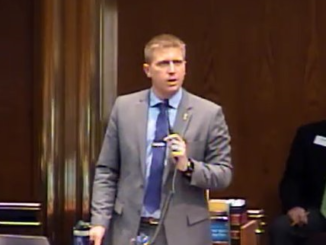
Temptation is a very real thing. Especially when it comes to spending other people’s money. And perhaps no other group of people cave to this temptation more than politicians. One need look no further than our very own North Dakota Legislature over the last ten years to see that this is true.
As North Dakota’s 65th Legislative Assembly seeks to wrap up this week, one of the questions that many have is where the state will be sitting financially when the final gavel drops. North Dakota is constitutionally mandated to have a balanced budget, but that hasn’t prevented record spending. This last biennium resulted in a budget shortfall in which Governor Jack Dalrymple called a special session to address the situation.
In 2010 the voters of North Dakota approved a ballot measure that created the Legacy Fund– a "rainy day fund" of sorts. The North Dakota Treasurer’s website describes it like this:
"…the measure which created a perpetual source of state revenue from the finite natural resources of oil and natural gas. This created Article X, Section 26, of the Constitution of North Dakota. That section provides:
1. Thirty percent of total revenue derived from taxes on oil and gas production or extraction must be transferred by the State Treasurer to a special fund in the state treasury known as the Legacy Fund. The Legislative Assembly may transfer funds from any source into the Legacy Fund and such transfers become part of the principal of the Legacy Fund."
But the fund didn’t come without stipulations:
"2. The principal and earnings of the Legacy Fund may not be expended until after June 30, 2017, and an expenditure of principal after that date requires a vote of at least two-thirds of the members elected to each house of the Legislative Assembly. Not more than fifteen percent of the principal of the Legacy Fund may be expended during a biennium."
As of this writing, the Legacy Fund sits at over $3.8 billion. The question for many going into this session was whether or not the legislature would raid that fund in order to deal with our current budget issues.
It’s a divisive question for some. Just yesterday a Letter to the Editor was published by the Forum declaring outrage "that devastating cuts to education and all state services are being made at the same time the Legacy Fund continues to grow". Others are on the opposite side of that stance. A recent editorial in the Grand Forks Herald suggested that not even the earnings from the fund be spent. Thus speculating that it would grow to $102 billion by 2060 if left alone.
I contacted two legislators yesterday to inquire about their thoughts on the issue. I chose from each chamber. The one from the House side told me that he thought they could complete the session without spending a dime of the Legacy Fund. The one from the Senate wasn’t so confident. He said they would likely spend $160 million of the earnings and leave the principal untouched.
It is true that the Legacy Fund was sold as a "rainy day fund". And many feel that the rainy days have come. Yet, are they really rainy days or did the legislature turn on the hose and give us a good dousing?
Perhaps there’s bigger questions at hand here. When the voters of North Dakota approved of the creation of the Legacy Fund, did they anticipate it becoming an excuse for the legislature to spend more than they should; knowing that a safety net existed should the lucrative oil revenues slow down or dry up? Did the voters anticipate that some may advocate using the very fund they thought was a rainy day fund as an excuse to keep on spending?
Something has to give. The mentality that we can continue managing our state’s fiscal affairs this way is irresponsible. At some point, we have to accept the fact that the right thing to do is to limit the size and scope of the government. We have to be frugal. We need to encourage personal responsibility, true free markets, and we desperately need a serious reduction in spending.
Will the Legacy Fund survive North Dakota’s so-called "rainy days"? Perhaps. But if it ends up being used as an excuse to get us by until the state can spend like drunkards again – or to even spend more than they should be now – then perhaps we’re better off not having it at all.
Sources:
1. http://www.nd.gov/treasurer/?id=79
2. http://www.inforum.com/opinion/letters/4252177-letter-legacy-fund-belongs-north-dakota-citizens-not-carlson-and-wardner
3. http://www.grandforksherald.com/opinion/our-opinion/4250763-editorial-legacy-fund-and-power-compound-interest





